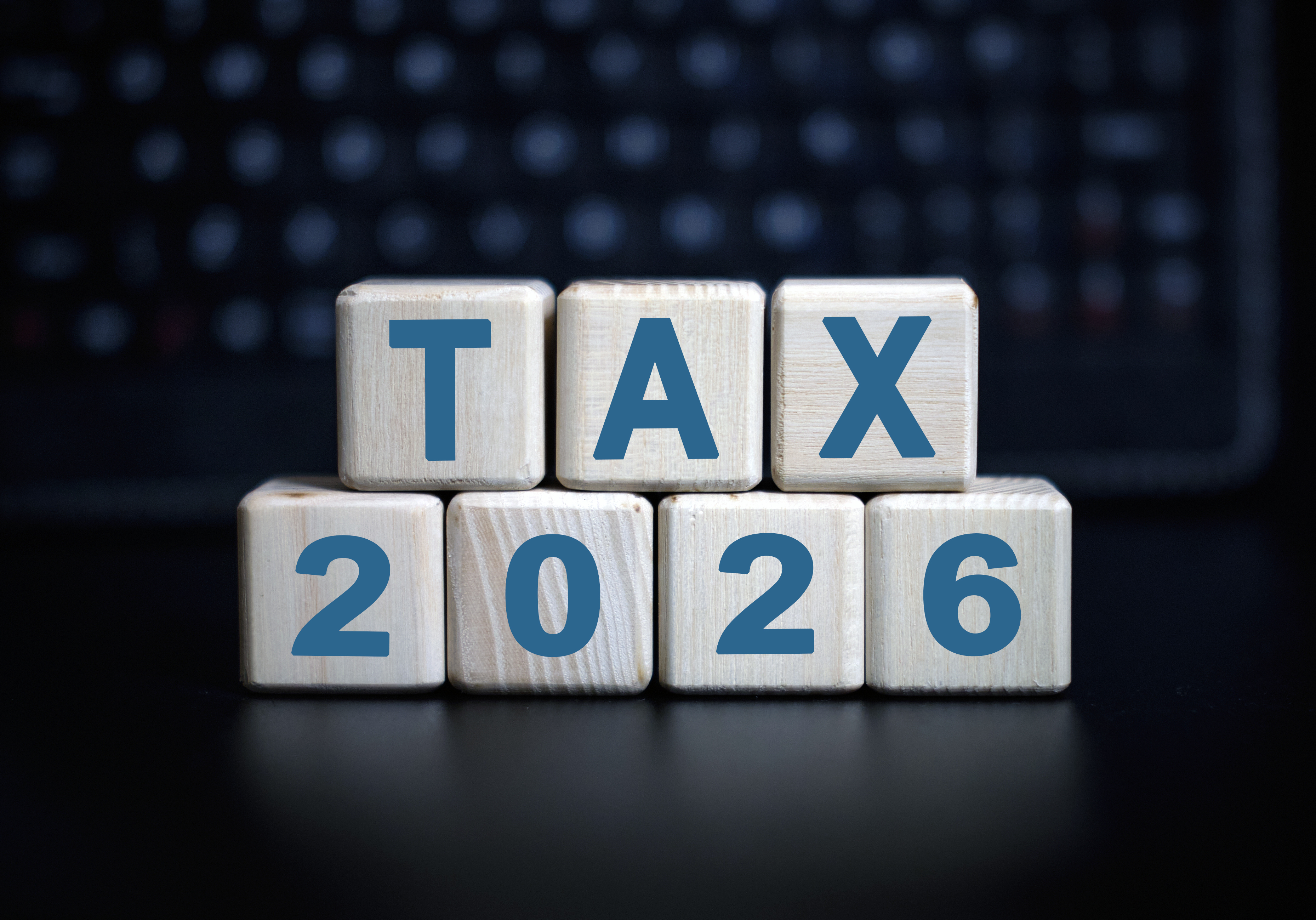Putting IRA Withdrawals Back Into Your Account
The IRS recently extended the period during which you can put 2009 distributions back into an IRA without tax consequences.

Profit and prosper with the best of Kiplinger's advice on investing, taxes, retirement, personal finance and much more. Delivered daily. Enter your email in the box and click Sign Me Up.
You are now subscribed
Your newsletter sign-up was successful
Want to add more newsletters?

Delivered daily
Kiplinger Today
Profit and prosper with the best of Kiplinger's advice on investing, taxes, retirement, personal finance and much more delivered daily. Smart money moves start here.

Sent five days a week
Kiplinger A Step Ahead
Get practical help to make better financial decisions in your everyday life, from spending to savings on top deals.

Delivered daily
Kiplinger Closing Bell
Get today's biggest financial and investing headlines delivered to your inbox every day the U.S. stock market is open.

Sent twice a week
Kiplinger Adviser Intel
Financial pros across the country share best practices and fresh tactics to preserve and grow your wealth.

Delivered weekly
Kiplinger Tax Tips
Trim your federal and state tax bills with practical tax-planning and tax-cutting strategies.

Sent twice a week
Kiplinger Retirement Tips
Your twice-a-week guide to planning and enjoying a financially secure and richly rewarding retirement

Sent bimonthly.
Kiplinger Adviser Angle
Insights for advisers, wealth managers and other financial professionals.

Sent twice a week
Kiplinger Investing Weekly
Your twice-a-week roundup of promising stocks, funds, companies and industries you should consider, ones you should avoid, and why.

Sent weekly for six weeks
Kiplinger Invest for Retirement
Your step-by-step six-part series on how to invest for retirement, from devising a successful strategy to exactly which investments to choose.
I know that required minimum distributions from IRAs have been suspended for 2009, but I had automatically received my regular IRA payments in a lump sum at the beginning of the year. Can I put the money back into the account so I can avoid paying taxes on it? And what do I need to do about my 2010 withdrawals?
Yes, you can put at least some of the money back into the account if you act quickly. And that could be a good idea if you don’t need the money now and want to avoid paying taxes on the distribution this year.
The IRS recently extended the period during which you can put 2009 distributions back into an IRA without tax consequences. Originally, you had only 60 days after receiving the money to put it back into the account. But now you have until November 30 or 60 days from the time you withdraw the money, whichever is later, to return 2009 money to the account.
From just $107.88 $24.99 for Kiplinger Personal Finance
Become a smarter, better informed investor. Subscribe from just $107.88 $24.99, plus get up to 4 Special Issues

Sign up for Kiplinger’s Free Newsletters
Profit and prosper with the best of expert advice on investing, taxes, retirement, personal finance and more - straight to your e-mail.
Profit and prosper with the best of expert advice - straight to your e-mail.
To make it easy to keep track of the time limit, brokerage firm Fidelity is telling customers that if they took RMDs from January 1 to October 1, 2009, they will have until November 30 to roll the money back in. But if they took the withdrawals from October 2 to December 31, they have 60 days to return the distribution.
There is a catch: You are allowed to put one IRA withdrawal back into the account within 365 days. So if you received regular distributions every month, for example, then you can put only one of the withdrawals back in. If you received the money in a lump sum, however, then you can put it all back into the account.
If you had any taxes withheld from the distribution, then you’ll need to put that money back into the account, too; otherwise the amount withheld will be considered a distribution and will be taxed as ordinary income.
For more information about the rules for putting IRA withdrawals back into your account, see the IRS Notice about the new guidance. For more about 2009 RMDs in general, see Who Has to Take an IRA Distribution in ’09 and Wise Moves for a Year With No RMDs. Also see A Break in ’09 for Withdrawals From Inherited IRAs for special rules about putting the money back into an inherited IRA.
Another option: Because you aren’t required to withdraw the money this year, you may want to roll some of it into a Roth IRA. You’ll have to pay taxes when you make the switch, but you can take tax-free withdrawals after five years, you never have to take required minimum distributions, and you can create a tax-free inheritance for your heirs. You don’t need earned income to convert a traditional IRA to a Roth; your adjusted gross income just needs to be less than $100,000 in 2009. That income limit for conversions disappears in 2010. See The New Roth Rollover Rules Explained for more information about rolling over a traditional IRA to a Roth, including details about how to figure out the tax bill.
And you can still make a tax-free rollover from an IRA to a charity in 2009, too. See Making Charitable Contributions From an IRA for details.
Required minimum distributions will resume in 2010, so this is a key time to think about next year’s withdrawals. If you’d like to receive regular payments throughout the year, it’s important to let your IRA administrator know. Depending on how you stopped them for 2009, you may need to fill out new paperwork.
At Vanguard, for example, if you originally signed up for automatic RMDs but had the service suspended for 2009, you should have been offered the option to reestablish the automatic RMDs for 2010. Vanguard will send a RMD statement in January with the details. If you removed the RMD service entirely, you’ll need to sign up again to schedule your 2010 distributions.
Profit and prosper with the best of Kiplinger's advice on investing, taxes, retirement, personal finance and much more. Delivered daily. Enter your email in the box and click Sign Me Up.

As the "Ask Kim" columnist for Kiplinger's Personal Finance, Lankford receives hundreds of personal finance questions from readers every month. She is the author of Rescue Your Financial Life (McGraw-Hill, 2003), The Insurance Maze: How You Can Save Money on Insurance -- and Still Get the Coverage You Need (Kaplan, 2006), Kiplinger's Ask Kim for Money Smart Solutions (Kaplan, 2007) and The Kiplinger/BBB Personal Finance Guide for Military Families. She is frequently featured as a financial expert on television and radio, including NBC's Today Show, CNN, CNBC and National Public Radio.
-
 Nasdaq Leads a Rocky Risk-On Rally: Stock Market Today
Nasdaq Leads a Rocky Risk-On Rally: Stock Market TodayAnother worrying bout of late-session weakness couldn't take down the main equity indexes on Wednesday.
-
 Quiz: Do You Know How to Avoid the "Medigap Trap?"
Quiz: Do You Know How to Avoid the "Medigap Trap?"Quiz Test your basic knowledge of the "Medigap Trap" in our quick quiz.
-
 5 Top Tax-Efficient Mutual Funds for Smarter Investing
5 Top Tax-Efficient Mutual Funds for Smarter InvestingMutual funds are many things, but "tax-friendly" usually isn't one of them. These are the exceptions.
-
 3 Retirement Changes to Watch in 2026: Tax Edition
3 Retirement Changes to Watch in 2026: Tax EditionRetirement Taxes Between the Social Security "senior bonus" phaseout and changes to Roth tax rules, your 2026 retirement plan may need an update. Here's what to know.
-
 The 'Scrooge' Strategy: How to Turn Your Old Junk Into a Tax Deduction
The 'Scrooge' Strategy: How to Turn Your Old Junk Into a Tax DeductionTax Deductions We break down the IRS rules for non-cash charitable contributions. Plus, here's a handy checklist before you donate to charity this year.
-
 New 2026 Tax Change Could Mean More for Your IRA and 401(k) Savings
New 2026 Tax Change Could Mean More for Your IRA and 401(k) SavingsRetirement Savings Here's how the new IRS inflation adjustments will increase the contribution limits for your 401(k) and IRA in the new year.
-
 10 Retirement Tax Plan Moves to Make Before December 31
10 Retirement Tax Plan Moves to Make Before December 31Retirement Taxes Proactively reviewing your health coverage, RMDs and IRAs can lower retirement taxes in 2025 and 2026. Here’s how.
-
 Claiming the Standard Deduction? Here Are Five Tax Breaks for Retirement in 2025
Claiming the Standard Deduction? Here Are Five Tax Breaks for Retirement in 2025Tax Tips If you’re retired and filing taxes, these five tax credits and deductions could provide thousands in relief (if you qualify).
-
 IRS Names Its First CEO: But He’s Also Still Running Social Security
IRS Names Its First CEO: But He’s Also Still Running Social SecurityTax News Will this new role make it difficult to address emerging issues like budget and staffing cuts and customer service concerns?
-
 IRS Phasing Out Paper Checks: Here's What to Know in 2026
IRS Phasing Out Paper Checks: Here's What to Know in 2026Tax Changes IRS tax refunds and Social Security paper checks are typically delivered online now. Will that impact your money?
-
 Ask the Editor, September 12: Tax Questions on 529 Plan Rollovers to a Roth IRA
Ask the Editor, September 12: Tax Questions on 529 Plan Rollovers to a Roth IRAAsk the Editor In this week's Ask the Editor Q&A, we answer four questions from readers on transferring 529 plan money to a Roth IRA.